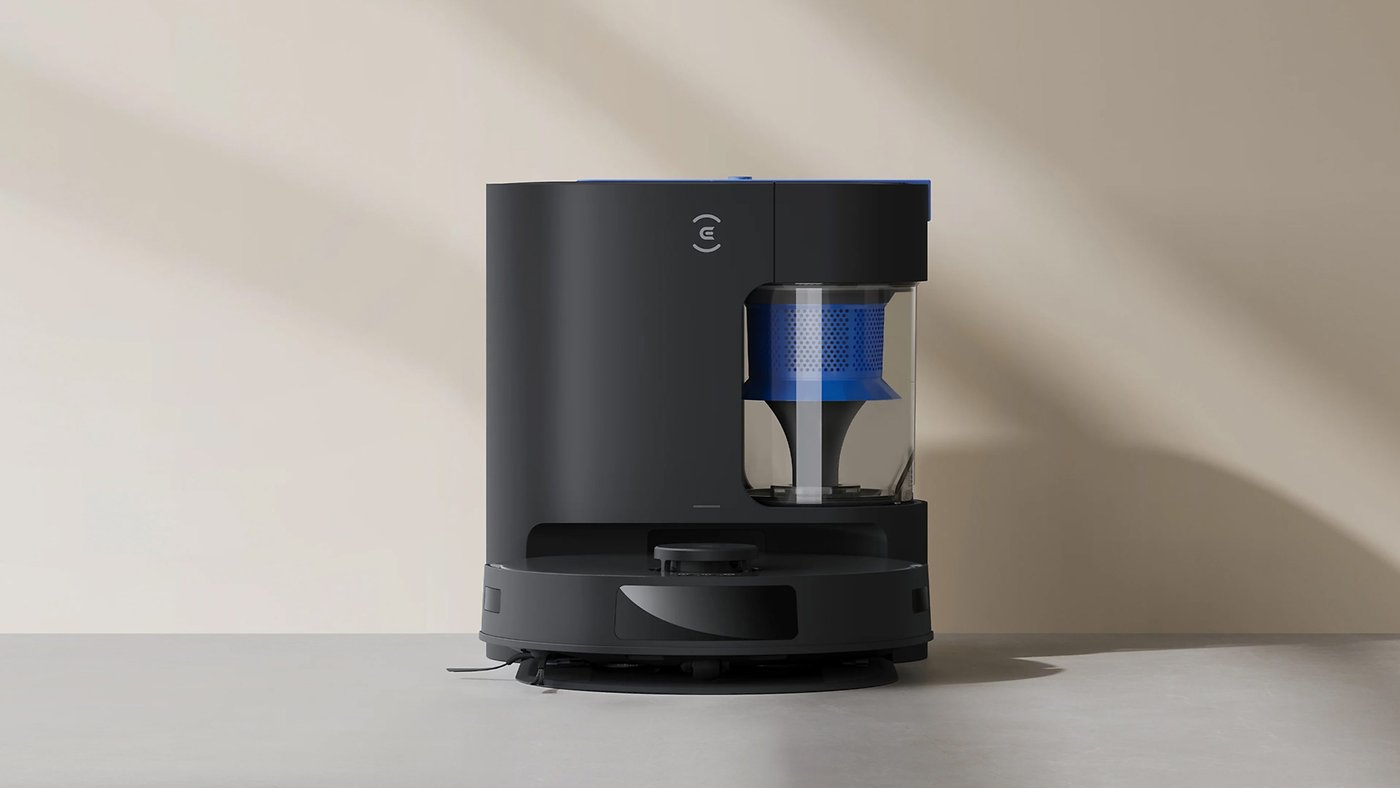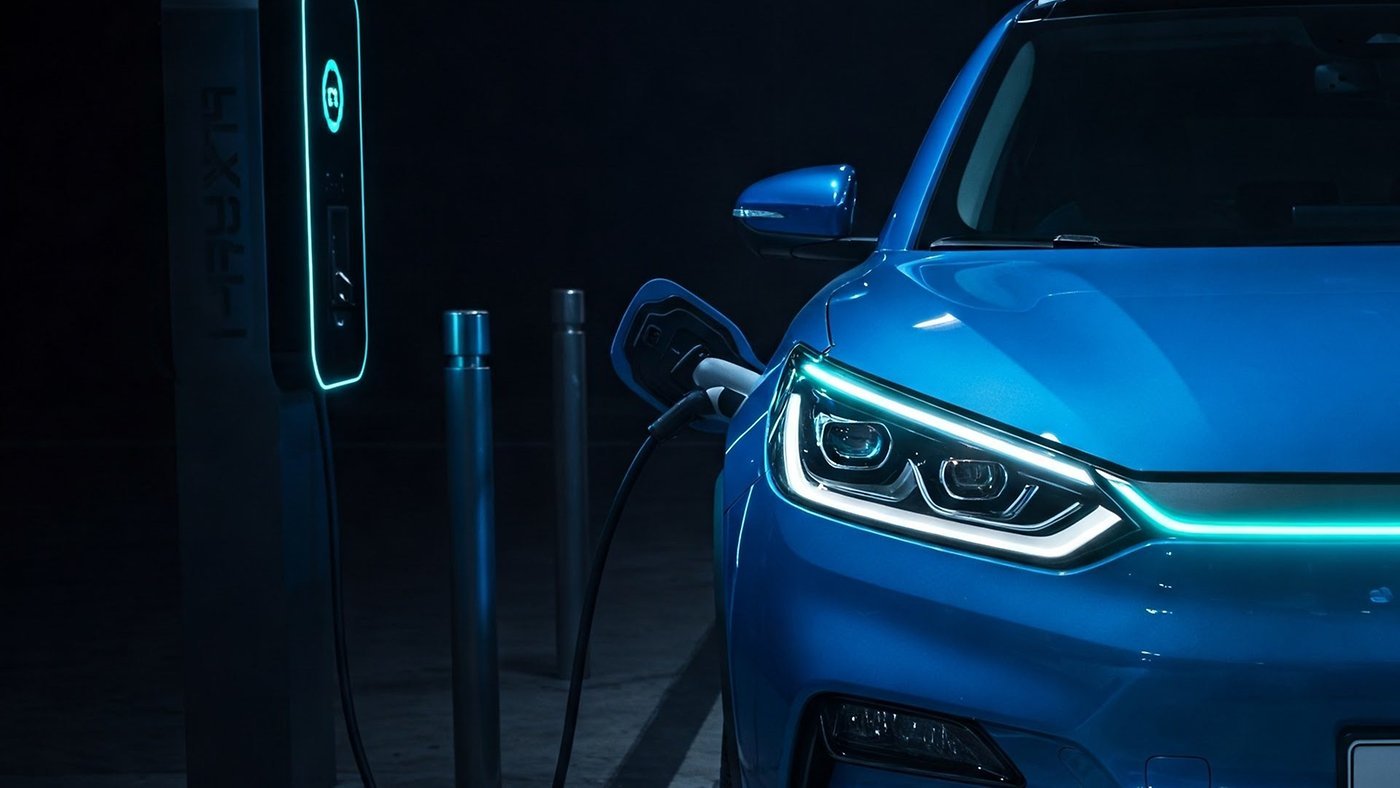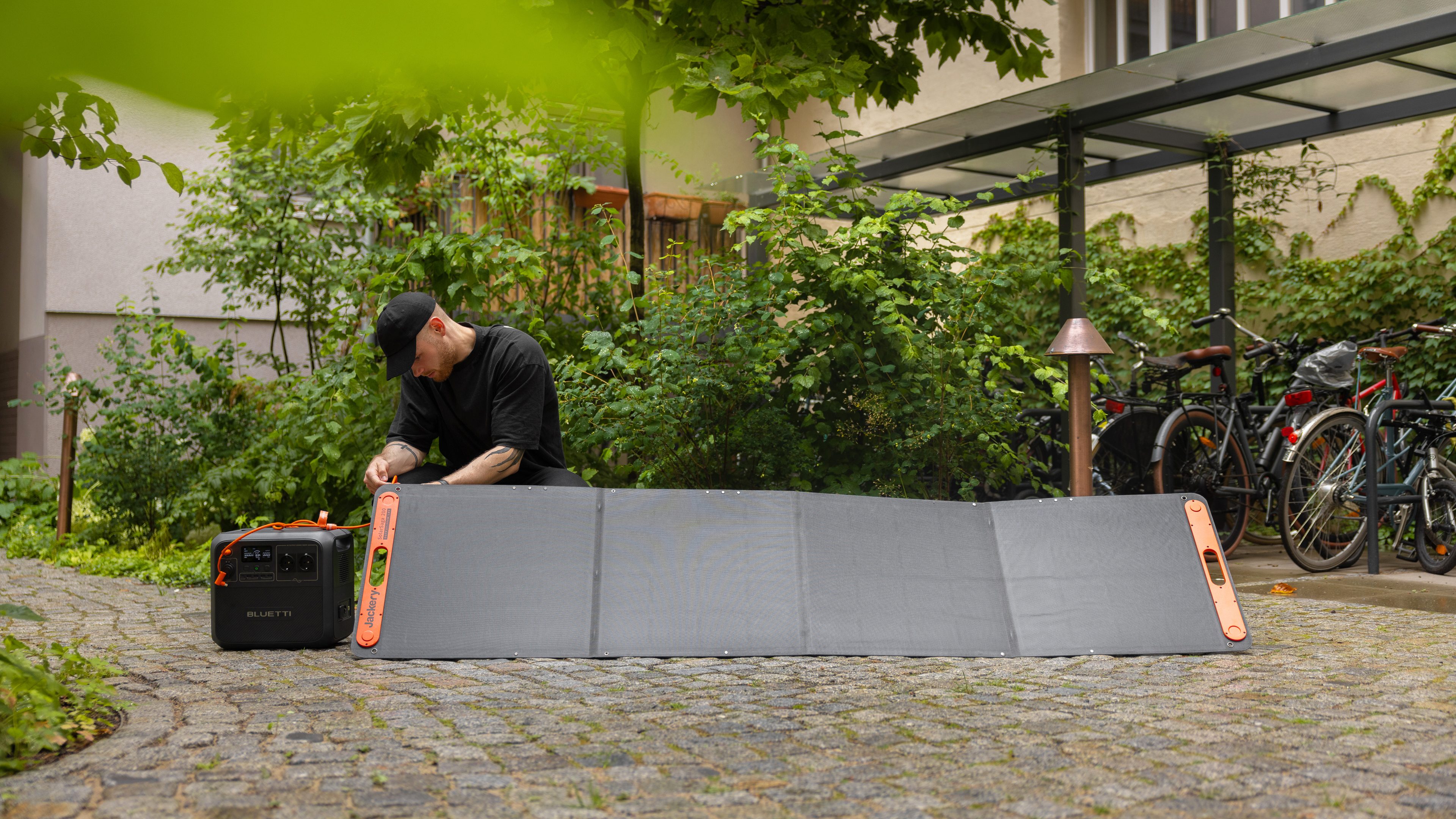
Jackery has impressed with the combination of great comfort and performance in numerous power stations, just like we found out when testing the Explorer 2000 Plus. Is this also true for Jackery’s solar panels? On paper, the SolarSaga 200 is the most efficient solar panel nextpit has tested so far. Keep reading to find out whether the foldable solar panel is also convincing in practice or if the bar is set too high.
Good
- High-quality design
- Available eyelets
- Adjustable setup angles
- Magnetic pads allow quick folding
Bad
- Output power lower than competitors
- Quite expensive
Jackery Solar Saga in a nutshell
The Jackery SolarSaga 200 is a high-quality and above all convenient solar panel for your next adventure. With the adjustable set-up angles, you can flexibly set up the foldable module and quickly fold it up thanks to the magnetic pads.
As great as the convenience aspect of the mobile energy source is, the deficits in terms of performance cannot be overlooked. On top of that, the SolarSaga 200 comes with a massive price tag of $699.00.
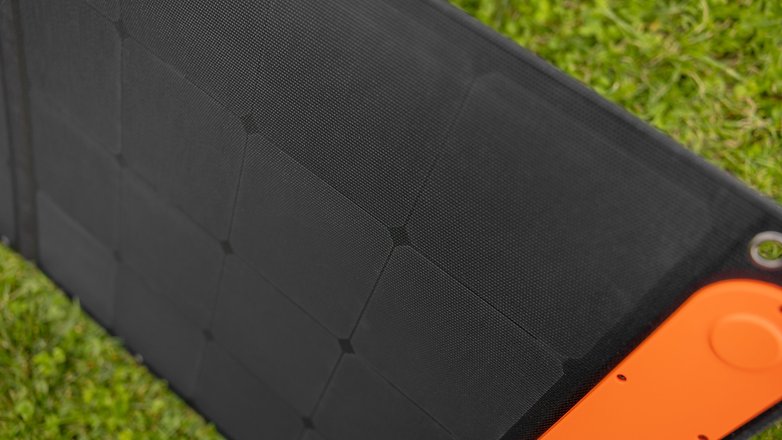
Desig
The Jackery SolarSaga 200 is assembled and disassembled in seconds. For transport, there is a bag for the panel and the necessary cables. If you plan to attach the SolarSaga 200 to your balcony or want to secure it from flying away while camping, that’s no problem thanks to the eyelets.
Pros:
- Adjustable stand.
- IP67 certified.
- Eyelets available.
Cons:
Once you have placed the SolarSaga 200 in front of you, you will quickly notice the high-quality design of the solar panel. When folded out, the solar panel measures 54 × 232 cm and takes up quite a bit of space, but when folded up, you can of course take the SolarSaga 200 with you wherever you go. Jackery has installed carrying handles on each side of the panel for convenient transport of the 17.5 lbs (8 kg) solar module.
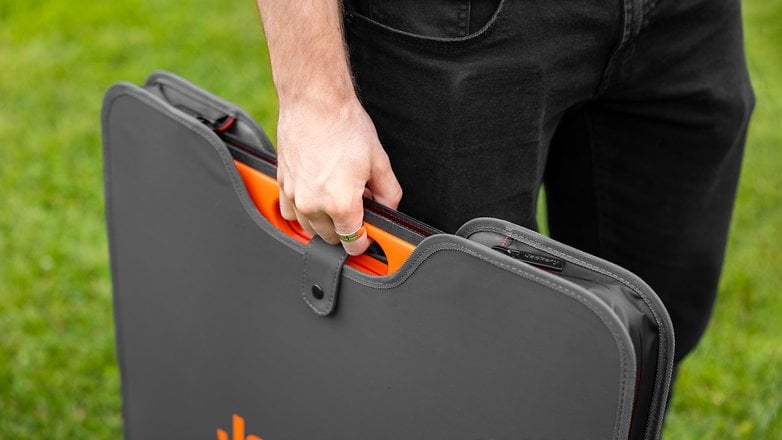
There is also a bag for the panel. The special feature of the bag: there is extra space for necessary cables in the bag. Since we are talking about the box contents: Besides the SolarSaga 200 and the bag, you will finally find a DC charging cable and a user manual.
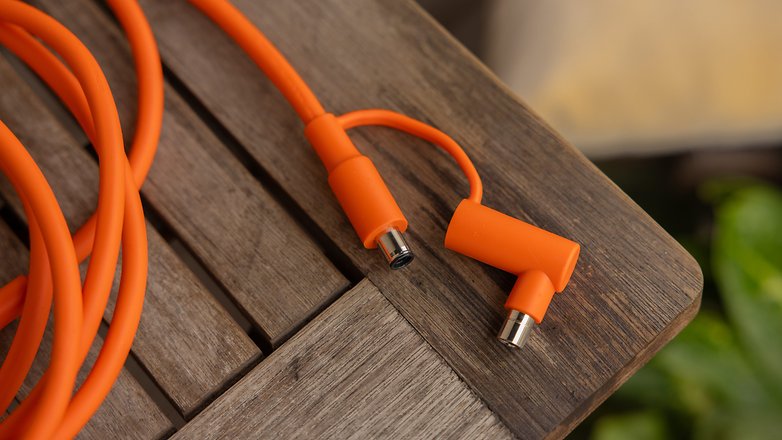
At the back, there are adjustable stands that magnetically stick to the panel. This way you can align the panel to the high or low sun. Jackery does not provide exact specifications for the angles—flexibly repositioning the panel did not cause any problems in the test.
In addition, the panel is dust-proof according to IP67 and protected against splashing water, so you can expose the panel to rain without hesitation. Only during storms should you secure the SolarSaga 200 extra well—or put it away.
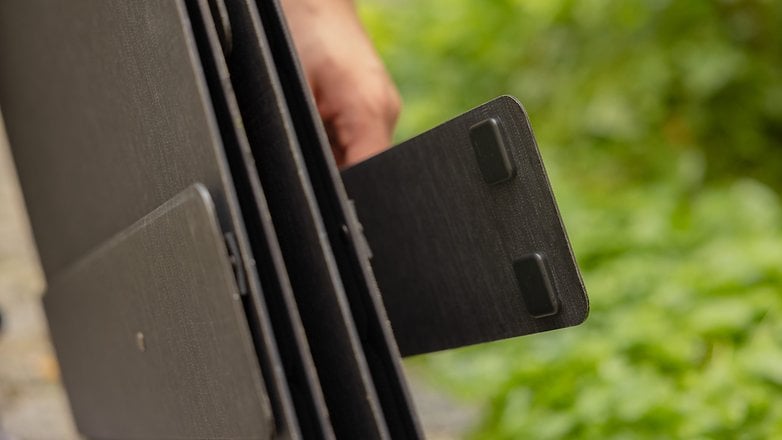
Jackery has also equipped the SolarSaga 200 with eyelets. So if you plan to attach the panel to your balcony, that’s no problem. However, you have to buy the necessary equipment like UV-resistant cable ties to fix the panel separately.
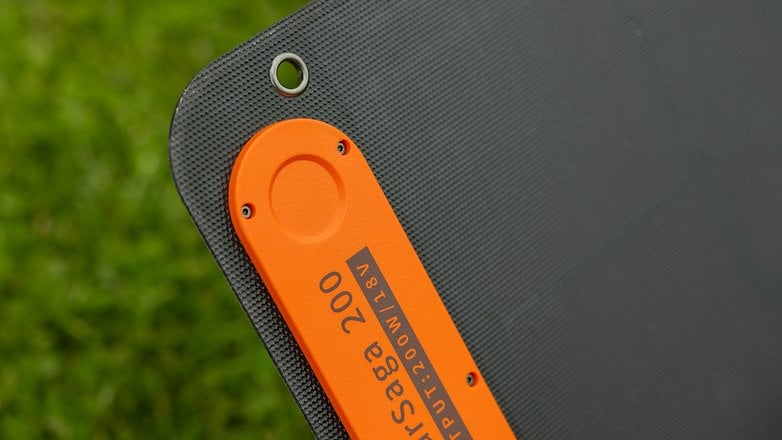
If the weather changes abruptly and you need to get your gear together quickly, that’s no problem with the SolarSaga 200. Jackery has installed magnetic pads on the panel. This means that the solar panel literally folds up by itself (my best time is an estimated 3.24 seconds).
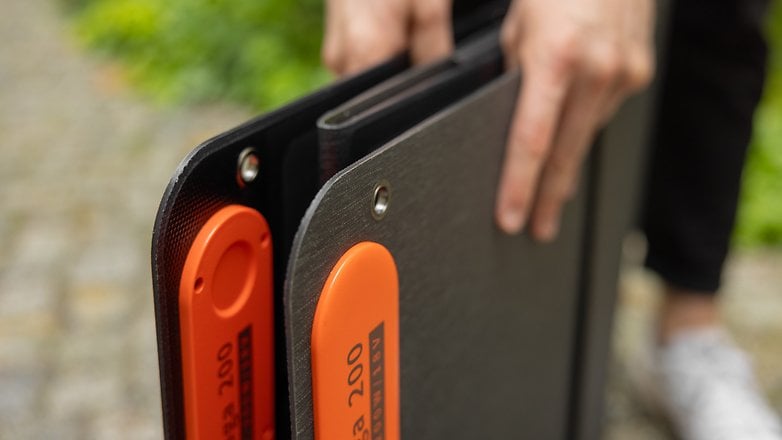
Solar cells and power
The Jackery SolarSaga 200 has the highest cell efficiency of any solar panel nextpit has tested to date – though it also has the lowest documented input power.
Liked:
- DC cable has two connectors.
Disliked:
- Output power was lower than competitors.
Jackery has installed monocrystalline solar cells with an ETFE-laminated housing in the SolarSaga 200, which have a cell efficiency of 24.3%. That means the solar panel is capable of converting up to 24.3% of captured sunlight into solar power, according to the manufacturer. The rated power of the mobile solar panel is 200 W.
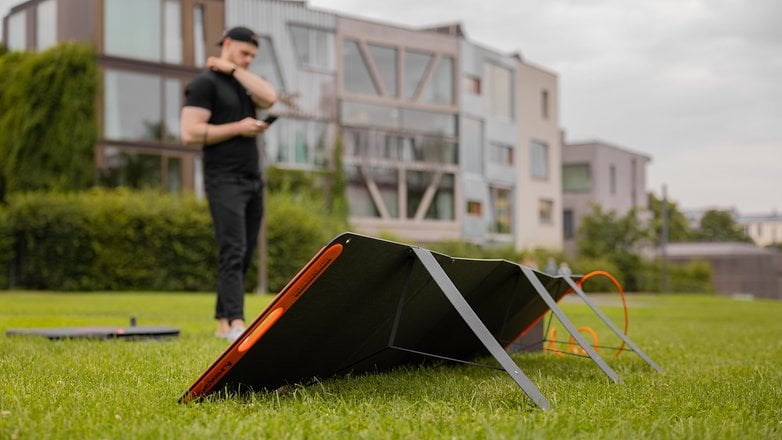
Here is a little hint for you: For the test of the Jackery SolarSaga 200, we used the Bluetti AC180 as a test power station, as we did for the test of the Bluetti PV200 and the test of the bifacial 220 W solar panel from Ecoflow. In order to ensure the same test conditions as possible, we also used the PV200 from Bluetti as a reference panel.
We already conducted the test on May 22, 2023, in Berlin under unfortunately mixed test conditions. At the time of our practical test, we had a cloudy sky with temperatures of about 23 degrees C. As impressive as the workmanship and comfort of the SolarSaga 200 are, the performance reveals itself to be the weak point.
In our hands-on test, the SolarSaga 200 consistently charged the AC180 at 140 W. At its peak, the SolarSaga 200’s output power increases to 147 W. We also document short-term power drops in the test—here the power dropped to 125 W.
For comparison: the Bluetti PV200 with the same rated power of 200 W supplies our test power station with a constant 165 W at the same time. At its peak, the Bluetti panel even reaches 172 W. The PV200’s power also dropped in between—the panel still charged 160 W in these phases.
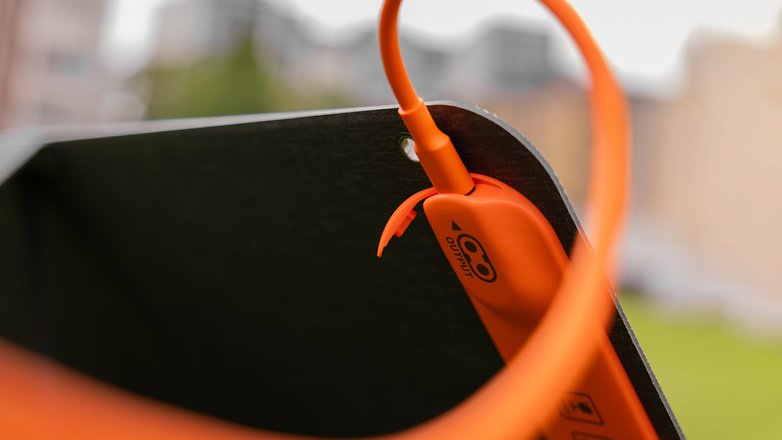
With a rated power of 200 W, our documented power loss of 60 W should initially be viewed with caution. With solar panels, a myriad of factors play a large role in getting the best possible results. Module orientation, for example, can already have a significant impact on solar panel performance. Nevertheless, given that the Jackery SolarSaga 200’s 24.3% efficiency is marginally higher than the Bluetti PV200’s 23.4% conversion rate, the result is surprisingly clear.
Conclusion about the Jackery SolarSaga 200
Jackery can do comfort. They have already impressively proven this several times with power stations, like with the Explorer 2000 Plus. This also applies to the SolarSaga 200. For transport, there is a bag with space for the necessary cables.
The setup is easily done without the help of a helping hand, and thanks to the magnetic pads, the SolarSaga 200 is folded in a few seconds. In addition, you can set up the solar generator at different angles so that you can best orient yourself to the high or low sun.
The high cell efficiency of 24.3% sounds all well and good on paper—however, the Jackery SolarSaga 200 is a prime example that high efficiency is not synonymous with higher power output. In the test, the SolarSaga 200 clearly lost out to the Bluetti PV200.
The fact that the SolarSaga 200 is significantly more expensive than the Bluetti PV200 doesn’t play into the Jackery panel’s favor either. According to the recommended retail price, you’ll pay a whopping $699.00 for the solar panel—whereas you can already buy the Bluetti PV200 for $499.00*. We definitely recommend you to have a look at our list of the best solar panels, in order not to disregard cheaper alternatives.





